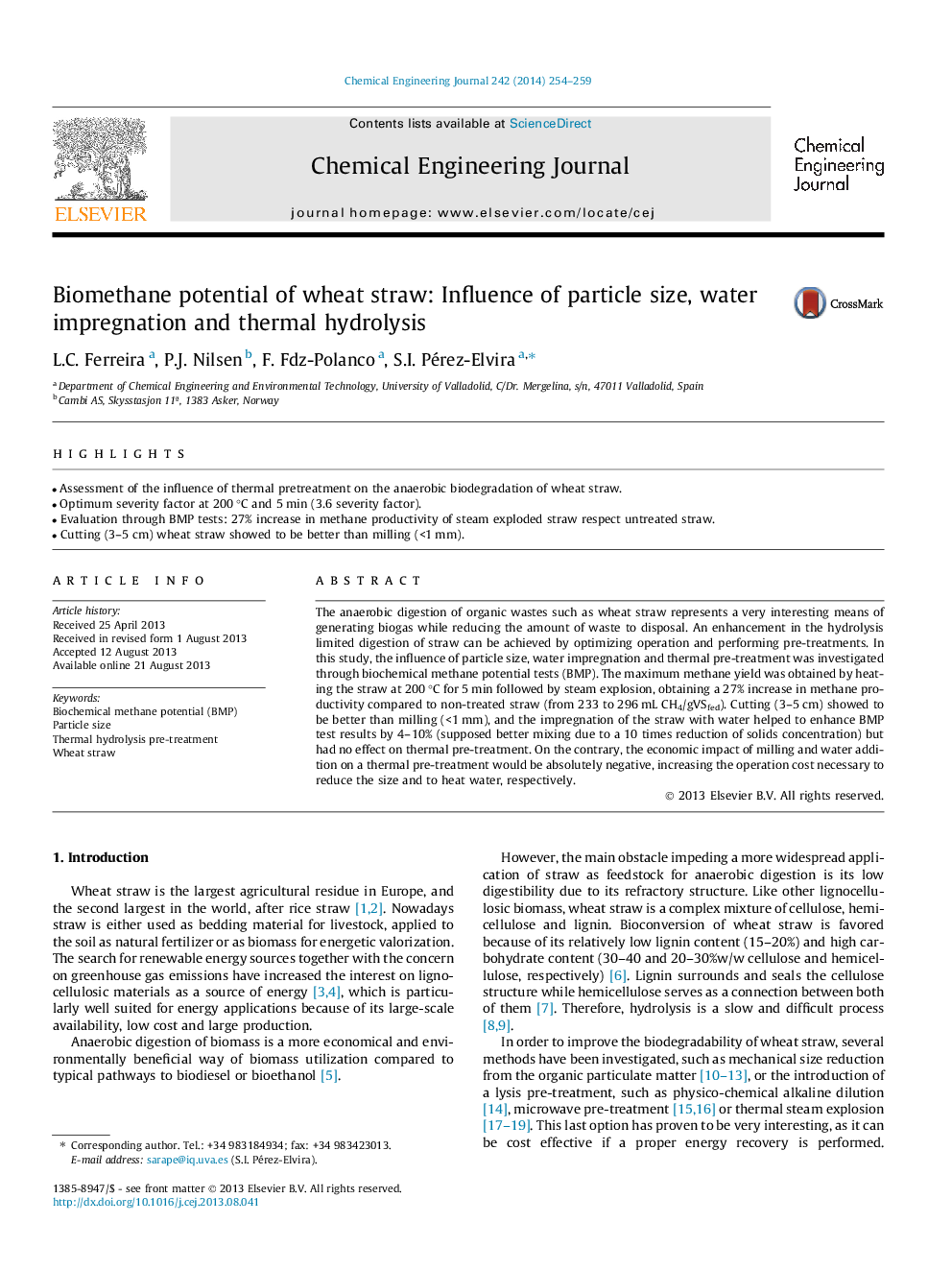| Article ID | Journal | Published Year | Pages | File Type |
|---|---|---|---|---|
| 147641 | Chemical Engineering Journal | 2014 | 6 Pages |
•Assessment of the influence of thermal pretreatment on the anaerobic biodegradation of wheat straw.•Optimum severity factor at 200 °C and 5 min (3.6 severity factor).•Evaluation through BMP tests: 27% increase in methane productivity of steam exploded straw respect untreated straw.•Cutting (3–5 cm) wheat straw showed to be better than milling (<1 mm).
The anaerobic digestion of organic wastes such as wheat straw represents a very interesting means of generating biogas while reducing the amount of waste to disposal. An enhancement in the hydrolysis limited digestion of straw can be achieved by optimizing operation and performing pre-treatments. In this study, the influence of particle size, water impregnation and thermal pre-treatment was investigated through biochemical methane potential tests (BMP). The maximum methane yield was obtained by heating the straw at 200 °C for 5 min followed by steam explosion, obtaining a 27% increase in methane productivity compared to non-treated straw (from 233 to 296 mL CH4/gVSfed). Cutting (3–5 cm) showed to be better than milling (<1 mm), and the impregnation of the straw with water helped to enhance BMP test results by 4–10% (supposed better mixing due to a 10 times reduction of solids concentration) but had no effect on thermal pre-treatment. On the contrary, the economic impact of milling and water addition on a thermal pre-treatment would be absolutely negative, increasing the operation cost necessary to reduce the size and to heat water, respectively.
